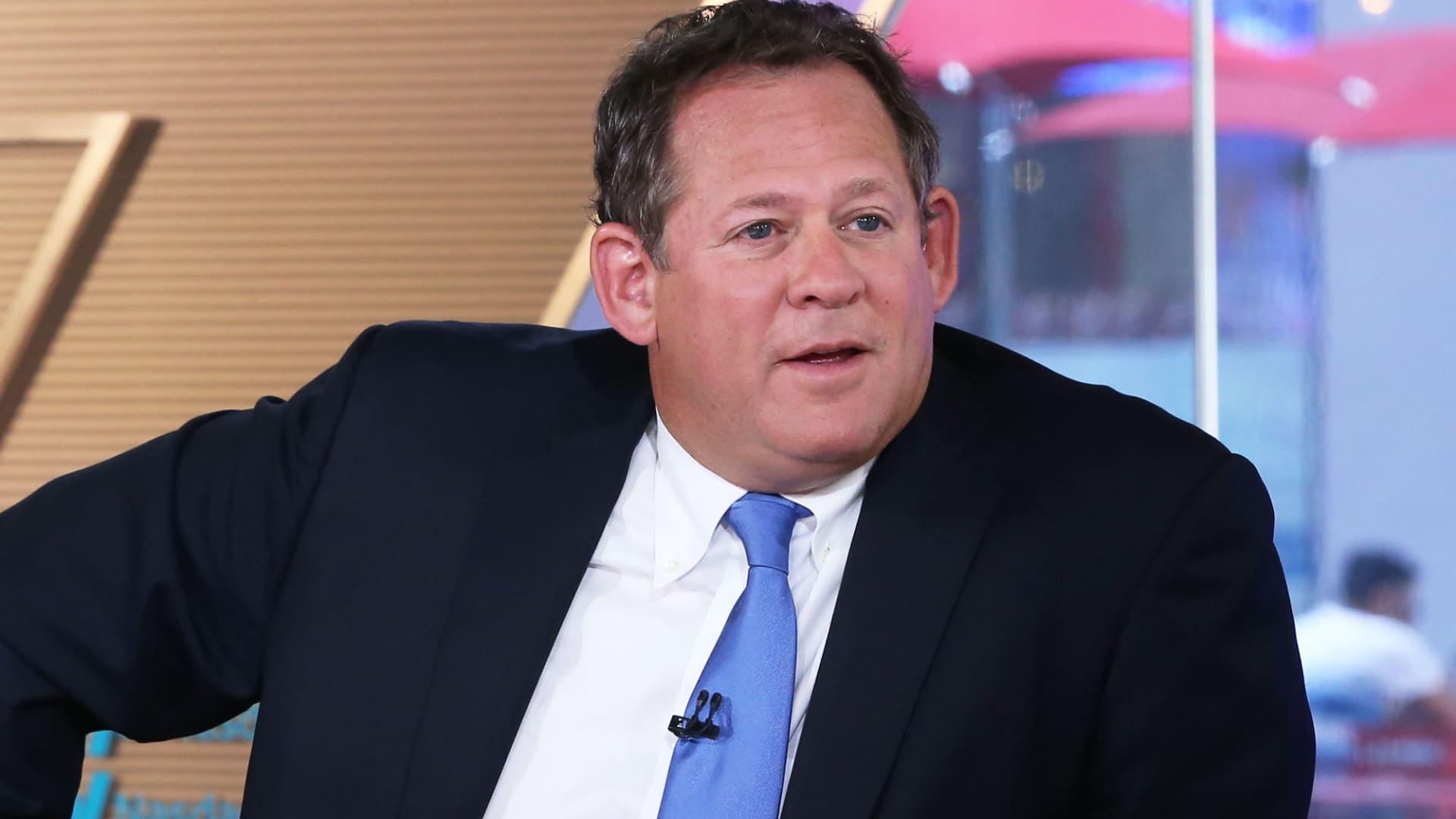
BlackRock’s Rick Rieder said he expects the Federal Reserve to raise rates by three quarters of a point Wednesday and then possibly hike two more times before halting. The Fed began its two-day meeting on Tuesday and was widely expected to announce the 75 basis point hike to its fed funds rate Wednesday at 2 p.m. ET. Fed Chairman Jerome Powell speaks to the press at 2:30 p.m. “I think the implications will be that you go 50 in September, and then I quite frankly think markets have gotten to a place, which I think is right, that they’re going to maybe do another 25 and I think that’s it,” said Rieder, BlackRock’s chief investment officer of global fixed income. Rieder said he will be watching Powell’s briefing in part for clues on how concerned the central bank is about the slowing economy. “The thing is watch what they do, not what they say,” said Rieder. “I’ve got to watch more what they say than what they do. Meaning, I don’t think the 75 or the statement are going to be that interesting. And I think they have to tone down the economic section of the statement. But I think what he says will be more important than the 75 in that the data is not ambiguous as to the slowdown.” Rieder said he has been listening to comments from companies like Walmart , Coca-Cola and McDonald’s . “There is no question about consumption slowing significantly,” said Rieder. He said companies are concerned about it, are uncertain about the future , and slowing investment and hiring as a result. “It will be interesting to see how much the chair points to that while saying ‘we’re still fighting inflation,'” he said. He said it will be important for markets to see how much the Fed recognizes the impact inflation and the slowing economy are having on consumers, particularly lower income. He said some companies have made it clear that disposable income is coming down as consumers are affected by the rising cost of necessities like food and fuel. “I’m in the camp, maybe too aggressively, that I think the Fed is going to go to a little beyond neutral and that’s it. I don’t agree you have to go significantly higher to bring down long-term inflation expectations,” he said. “I just don’t agree at all because the pressure you’re putting on low- to middle income [consumers] is intense.” Rieder said the economy is slowing, but from a strong position. “I think there is a 50% chance there’s a real, what I would argue is a functional, recession over the next nine to 12 months. You have a consumer starting in such good shape,” he said. “You have businesses starting in such good shape. It’s a pretty durable, flexible economy that will bring prices down to clear inventory.” Rieder said he is not worried about a deep recession. In prior recessions, there were large build ups of leverage that hurt demand. “The big structural potholes are just not there,” he said. He said Russia’s invasion of Ukraine further fueled inflation that is fundamentally a supply problem, not a demand problem. “I don’t agree with those who think you’ have to ‘Volcker’ it and bring down inflation expectations. I think the economy is doing that for the Fed,” he said. Former Fed chairman Paul Volcker famously raised interest rates as high as 20% to curb inflation in the early 1980s. “The next payroll report is going to be really important,” said Rieder. “I think you’ll see that what’s happening is job openings, through JOLTS data and otherwise, are really slowing, and I think you’re going to start to see that transition into hiring now slowing. A number of companies have talked about that already.” Rieder does not expect Powell to lay out the Fed’s next moves when he speaks Wednesday. “I think he will suggest that the big moves to get to neutral have been accomplished, and I think the markets will read into that 50,” he said, meaning a half point rate hike would be possible at the next meeting in September. Rieder sees the market as “overzealous” in pricing in significant easing in the form of rate cuts next year. “I just think its presumptuous to assume at this point that the Fed is now going to pivot to easing quickly after a very aggressive tightening,” he said. “Markets overreact. Markets go to extremes. The Fed shouldn’t,” he said.
